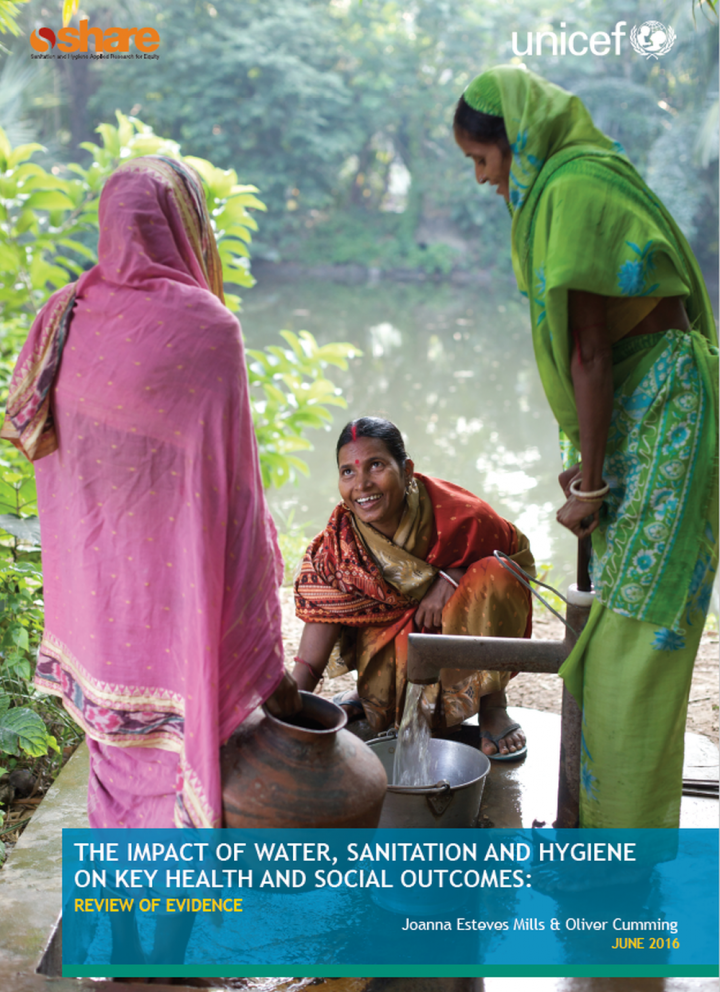The Impact of WASH on Key Health & Social Outcomes - Review of Evidence
Mills, J. E., Cumming, O. (2016)

Published in: 2016
Pages: 112
Publisher:
SHARE/UNICEF
Author:
Mills, J. E., Cumming, O.
Uploaded by:
Sophie Durrans
Partner profile:
Sanitation and Hygiene Applied Research for Equity (SHARE) consortium
8601 Views
1009 Downloads
This evidence paper looks at 10 areas identified collaboratively with the United Nations Children’s Fund (UNICEF) on which WASH can plausibly have a strong impact: diarrhoea, nutrition, complementary food hygiene, female psychosocial stress, violence, maternal and newborn health, menstrual hygiene management, school attendance, oral vaccine performance, and neglected tropical diseases.
Content - Summary
This evidence paper aims to provide evidence for specific elements of UNICEF’s forthcoming WASH Strategy, 2016-2030. In particular, it seeks to present the evidence on the importance of WASH to other outcomes beyond child diarrhoea. A key rationale for investing in WASH is the importance of WASH to other Sustainable Development Goal (SDG) outcomes. The essential inputs that the WASH sector provides, in the form of services and hygiene promotion, have multiple impacts beyond the WASH outcome itself, such as nutritional status, or education. This paper describes the contribution of WASH to outcomes in other sectors and summarises the evidence for investment in these areas.
Bibliographic information
Mills, J. E., Cumming, O. (2016). The Impact of WASH on Key Health & Social Outcomes - Review of Evidence. SHARE/UNICEF
Filter tags
English WASH and nutrition (WG12)















